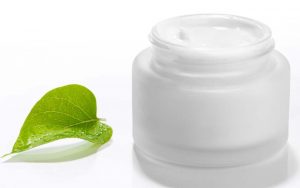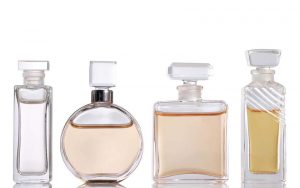Deciphering exactly what constitutes “natural” and “eco-friendly”, however, is slightly more difficult.
Natural brands tend to promote products that contain a high level of natural extracts, and are premised upon simple formulations that include only the necessities which are sourced from the natural environment. Eco-friendly brands are slightly different in that they are more focused upon the ethical sourcing of their ingredients, together with ecologically responsible packaging and shipping. Look out for brands that include information about their carbon footprint, or information about the sourcing of their ingredients and packaging.
Many brands profess to be natural, but there is no clear gauge for measuring what percentage of natural ingredients a product must have before it can be labelled as such. It is important to read the ingredients lists of products if you are looking to buy something more skin-friendly. If you are buying natural products due to a skin complaint, a very general rule of thumb is the shorter the ingredients list, the less likely it is to irritate the skin with a profusion of additives.
Mineral makeup has become increasingly popular in recent years as it professes to be more healthy and natural for your skin than conventional makeup. Whether this is true or not is a big source of contention, but there is one universal truth: where liquid foundations have a long and often unidentifiable ingredients list, mineral powder foundations are far more scaled back, leaving out preservatives, parabens, mineral oil, fragrance and chemical oils. This makes it a great solution for those who suffer from skin irritation, as they are less likely to react to the product with the exemption of those various additives.
Commonly avoided additives are parabens and SLS. Parabens are preservative chemicals that inhibit the growth of bacteria in skincare, hair care and makeup products, which make for a much longer shelf life. Though widely used, parabens are somewhat controversial and have been known to subtly emulate the hormone estrogen, which may cause problems for women. Though it has not been irrefutably proven, many choose to avoid parabens altogether as a precautionary measure.
SLS (Sodium Lauryl Sulfate) is another disputed chemical additive, though is more common in cleansers and shower products than skincare and makeup. The surfactant function of SLS provides deep cleansing action and is harmless for most skin types, but it can be harsh on skin that is prone to sensitivity. Look for soap-free and SLS-free products if you suffer from dry, itchy and red skin. If the problem continues, seek advice from a dermatologist.
To help clear things up, let’s look at how to choose safe skincare:
5 TIPS ON HOW TO CHOOSE SAFE SKINCARE
1. Know which claims are regulated (and which are not)
- ‘Hypoallergenic’, ‘dermatologically tested’, ‘no-tears formula’,‘for sensitive skin’, ‘fragrance-free’, ‘natural’ – many of the claims on the lotions and washes we buy are just that, claims. Claims which aren’t regulated, investigated or substantiated by governments or regulatory authorities.
- Even the term ‘organic’ is regulated in its use only in certain countries and its application (according to each country’s laws) often allows for loopholes and gaps in a product’s ingredients, which can allow suspicious chemicals and synthetic ingredients in. So your best bet? The ingredients list – the only thing that (almost) never lies!
2. Learn to identify the most commonly used petroleum-derived ingredients
Many commercial brands contain petroleum derivatives. Yes, you read that right – petroleum derivatives, i.e. from crude oil. Some of the more common ones are:
- Mineral Oil a.k.a. Paraffinum Liquidum,
- Petrolatum a.k.a. Petroleum Jelly,
- Propylene Glycol, PEGs (Polyethylene Glycol),
- Polysorbates (usually followed by a number) and DEA/MEA/TEA.
- The reason they’re used? They’re cheap, abundant and can last pretty much forever on the shelf. The downside? At best, they’re at risk of being contaminated with carcinogens during manufacturing and are linked to the rise in allergies. At worse, they are themselves carcinogens and are known toxins which are applied direct to the skin on a daily basis. And if that’s not enough, they’re terrible for the earth!

3. Be concerned about the preservatives used
- Preservatives are necessary to extend a product’s shelf life but there is a huge spectrum of preservatives used – from natural to synthetic – and some have come under a cloud of suspicion in recent years.
- Parabens (such as methylparaben, ethylparaben, butylparaben and propylparaben) have been linked to tumours in the breast and skin, and a possible role as ‘endocrine disruptors’ in mimicking hormones.
- Phenoxyethanol – a preservative commonly used in natural and organic products – is known to depress the central nervous system.
- Benzyl Alcohol – another commonly used preservative in mainstream and natural products – has been associated with contact allergy.
4. Avoid unnecessary fragrances
- Let’s begin with synthetic fragrances – which make up most of the fragrance ingredients in skincare products. The vast majority are synthetic compounds derived from – you guessed it – petroleum, as well as coal tar. These include VOCs (volatile organic compounds) linked to cancer, birth defects, central nervous system disorders and allergic reactions.
- Research has shown that these airborne chemicals have direct access to the brain and our internal systems through the nasal passages. Essential oils, used in many natural products for their fragrance, have been shown to emit similar chemicals when over-used. The worst thing? Fragrances are protected as ‘trade secrets’ so manufacturers aren’t required to list what goes into them in the first place.

5. Start reading labels and choose ingredients you recognise
- A good rule of thumb is if it doesn’t sound like something you’d like to put in your mouth, it’s probably better off not on your or your skin. We apply lotions, washes and creams to our skin (our single largest organ!) every single day and these often contain ingredients that are questionable at best.
- Even some naturally-derived ingredients are less beneficial than they appear.
Sodium lauryl/laureth sulphate and cocamidopropyl betaine, both derived from coconut oil, are known to irritate the skin and cause allergic reactions. - Cocamide DEA/MEA are known skin irritants and potential carcinogens.
- Lauryl glucoside and decyl glucoside (both derived from vegetable sources) have yet to be tested for safety.
- The more you know about what goes into your skincare, the more you know about what’s going into your body.


